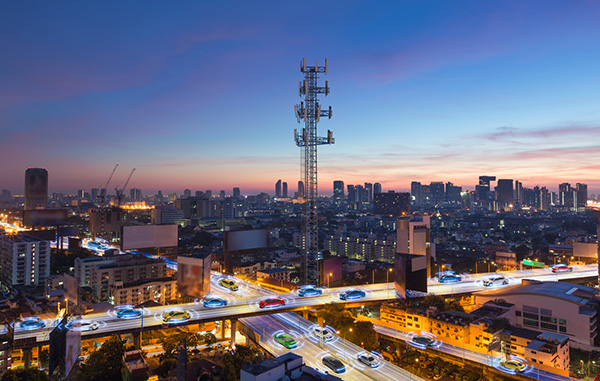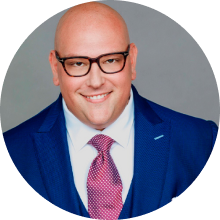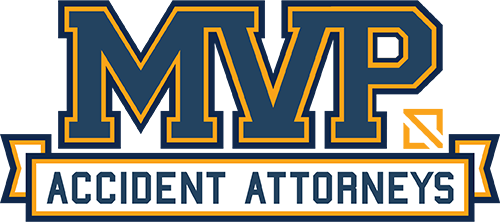
Who’s responsible for a self-driving taxi crash in california?
Find out how liability is determined in driverless taxi crashes and how to get compensation if you've been affected
Driverless cars are nothing new. More recently, however, the taxi and rideshare industry entered the fray by including self-driving cars to transport passengers from one place to another. With more of these autonomous vehicles on the roads, it’s only natural that accidents will occur, so it’s important to understand who’s responsible for an accident with a self-driving taxi.
Where are driverless taxis and rideshare vehicles available?
Driverless taxi and rideshare services have increased in recent years just as driverless cars, in general, have risen in popularity. Companies like Cruise and Waymo have led the way in the industry, offering taxi services to people in limited cities like San Francisco and Phoenix.
Previously, these companies had drivers to serve as a backup in the event that these autonomous vehicles ran into a problem. For safety’s sake, driverless cars were required to have a person in the driver’s seat to be alert if a potentially dangerous situation was on the horizon. If the vehicle seemed like it wasn’t going to stop for a pedestrian, for example, the driver could hit the brakes themselves.
Now, Cruise and Waymo have decided to eliminate the human driver from the equation. One of the reasons behind that decision is that it makes the rides cheaper for customers. The companies also claim that using driverless vehicles can help reduce accidents by eliminating reckless or distracted driving—2 of the biggest causes of crashes.
Are driverless cars dangerous?
Although car manufacturers have long touted their autonomous vehicles as safe, there are questions about the potential dangers of not having a human behind the steering wheel.
The National Highway Traffic Safety Administration (NHTSA) requires car manufacturers to report accidents involving autonomous cars with Level 2 (partial automation) advanced driver assistance systems (ADAS) or higher. There’s hope that this data will help create more safety information, education and regulations.
According to the NHTSA, between July 1, 2021, and May 15, 2022, 392 accidents occurred involving self-driving cars. Around 70 percent of these involved Tesla cars using either “Tesla Autopilot” (Tesla’s driver-assistance system) or Tesla’s “full self-driving” beta system.
Another 90 crashes involved Honda vehicles and 10 involved Subaru cars. The remaining cars were made by Ford, GM, Toyota and Volkswagen and involved 5 or fewer collisions.
Some of the self-driving car accidents (around 100) resulted in injuries. Out of those injured, 11 people suffered serious injuries, and 5 people were killed in the crashes.
Although companies such as Tesla argue that the features available in their driverless vehicles make their cars safer than those that rely on a human behind the wheel, more data will need to be collected and analyzed to confirm if these claims are accurate.
How serious are accidents involving driverless cars?
Two deadly accidents involving autonomous Tesla vehicles are currently under investigation. In 2019, a California crash involving a Tesla Model S and a Honda Civic resulted in the deaths of the 2 people in the Honda.
The driver of the Tesla was charged with vehicular manslaughter, a felony. According to the NHTSA, the vehicle was using Tesla Autopilot mode at the time of the accident.
One law lecturer and expert on autonomous vehicles who was consulted in the case stated that features like Tesla Autopilot shouldn’t replace human drivers, and Tesla should be held liable for the victims’ deaths.
Another Tesla Model S was involved in a separate deadly crash that claimed the lives of 3 people in California in May 2022. It’s believed that vehicle was also using the Tesla Autopilot feature at the time. The car was totaled after crashing into construction equipment, killing the occupants of the Tesla.
The NHTSA has conducted investigations into crashes involving Tesla vehicles to determine whether Tesla Autopilot was the culprit. It investigated 35 accidents and found that only 3 of them did not involve Autopilot.
Tesla has a statement on its website that says drivers must supervise their vehicles while using the self-driving feature. However, the company has been accused of misleading customers with its choice of wording, as its technology is not perfected to the point where its cars are 100 percent safe in self-driving mode.
So who’s liable after a driverless taxi accident?
California is a “fault” state, meaning that the person determined to be at fault for an accident is generally responsible for damages. In some cases, if both parties share the fault, the party determined to be more at fault would be liable for damages, but those damages would be reduced by the percentage of fault shared by the other driver.
For example, if the party who was determined to be 10 percent at fault for an accident was awarded $100,000 in damages, their final damage award would be reduced by $10,000.
All of this can become more complicated, however, if the accident involves a self-driving taxi. In some cases, it may be possible to sue the car manufacturer for damages in a product liability lawsuit if the accident was caused by a defect in the vehicle. This can sometimes be difficult to prove, but an experienced attorney can gather and examine evidence in your case to determine if the manufacturer may be liable for your particular accident.
When to contact a California car accident attorney
If you or a loved one was injured in an accident with a self-driving taxi or another autonomous vehicle, you need an experienced car accident attorney with knowledge of the ever-evolving laws and regulations surrounding these types of crashes.
At MVP Accident Attorneys, our lawyers have extensive experience with car accident cases and can answer all your questions about lawsuits involving autonomous vehicles. While accidents involving a car with self-driving technology can be more complicated than most, our attorneys can guide you through the process and handle all the negotiations with the insurance company to ensure you get the maximum compensation you deserve.
Contact us today for a free, no-obligation consultation of your case.
Author

Brett Sachs
Brett S. Sachs graduated from Michigan State University College of Law with Cum Laude Honors. While attending Michigan State, Brett was awarded for his service in the Michigan State University College of Law Civil Rights Clinic, where he represented prisoners of the Michigan Department of Corrections from injustices brought upon them. Learn more.
Top-Rated Lawyers

Lizbhett Rodriguez
Jason Acosta

When You’ve Been Injured
Personal Injury Law

